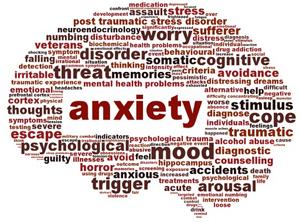
When sports result in a serious injury, athletes not only need to heal physically, but they often struggle to regain confidence. These feelings can influence how they react to the injury, approach recovery and get back to their sport.Remember that after a sports injury, it’s normal to feel mild apprehension about recovery. It even serves a purpose by providing some protection from re-injury. However, if you feel persistent and intense fear, it can disrupt your return to the sport.This condition can be complicated and can often result from multiple factors, including:
- Unrealistic expectations about recovery
- Excessive outside pressures
- Insecurity
- Obsessive or amplified worry
You can lessen the impact of a serious sports injury. Acknowledge any fear you have and then learn how to respond. Knowing what to expect in recovering, setting realistic goals and understanding the supports that are available during rehab can help.How to move through feelings following an injuryImmediately after an injury, it’s common for athletes feel angry, disappointed or impatient — all part of an acute adjustment reaction. Depending on the situation or severity of the injury, this reaction shouldn’t last long. The athlete should be able to move from this reactionary phase to a motivation phase, characterized by a desire to return to play.Set goals and a tentative timeline for progress to help you have proper expectations for rehab, training and return to play.It’s important to remember that the timeline isn’t absolute and that the inability to meet goals isn’t a sign of failure. Using ranges of time (“I’ll start light workouts in one to three weeks”) rather than setting a specific date will help minimize unrealistic goals.Coaches and parents: Stay emotionally neutralParents, coaches and trainers should stay as emotionally neutral as possible during recovery, even with star athletes, because real or perceived pressures may further fuel the fear to return. During rehab, an athlete’s refusal or reluctance to exercise and train may be a sign of underlying fear.Sometimes, athletes may have a range of extreme psychological reactions that become disabling.These may include:
- Persistent anger
- Hopelessness
- Obsessive or irrational worry (despite reassurance)
- Panic attacks (accelerated heart rate, excessive sweating, shaking, shortness of breath, dizziness)
- Nightmares or flashbacks of the injury
Avoiding people, places and things connected with the injuryIn these situations, a psychiatrist with experience in treating athletes can help. In most cases, treatment includes brief talk therapy to identify mental mistakes and modify behavior.In persistent cases, anti-anxiety or antidepressant medications may ease emotional distress and promote speedier return to play. Any suicidal thoughts or irrational fears should prompt immediate medical attention.Advice for returning to play after rehabAs the end of rehab nears, athletes may worry about their ability to perform or how their team will react to their return. Informal locker room or sideline visits can reduce feelings of isolation and help with bonding.Fear of re-injury can make an athlete hesitant about playing at full speed. In these cases, using mental and behavioral preparation exercises can gradually expose you to the feel of returning to competition.Visualization exercises may help athletes “see” themselves returning to competition. They may also consider going to the field, track or court to “feel” or “hear” the surroundings, particularly where the injury occurred. These exercises help neutralize the anxiety that can occur when back on the playing field. To read the original article, please click the following link: http://cle.clinic/1w9NWcd
